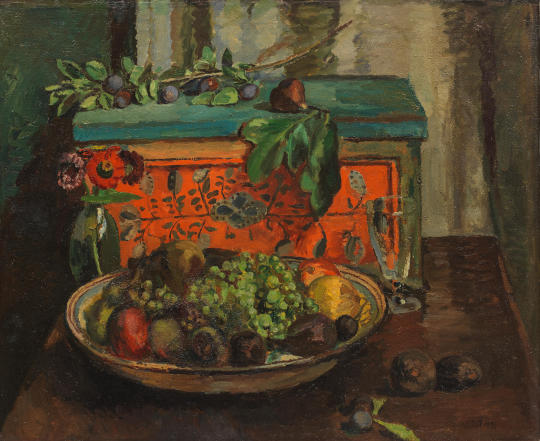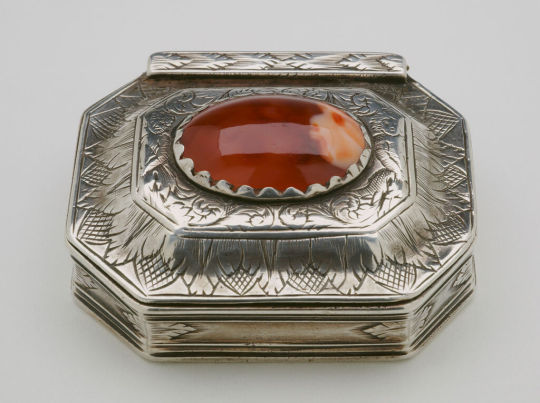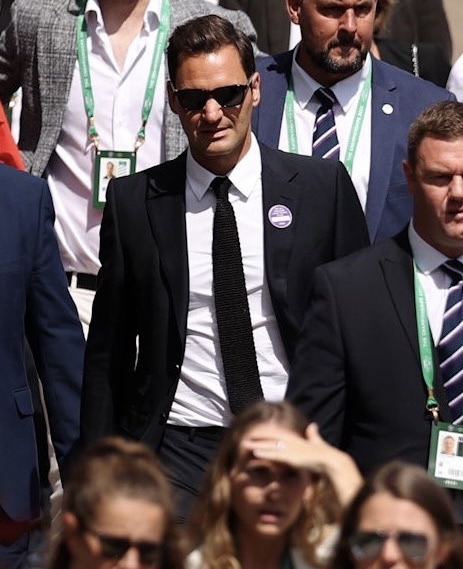#british boxing
Text
David Chisora in full Barbie-Pink for his daughters, with them in matching pink, kissing them before he goes into the ring, is EXACTLY the wholesome masculinity I like to see.

#WarChisora#GirlDad#boxing#british boxing#derek chisora#chisora boxing#wholesome masculinity#barbie movie#barbie
2 notes
·
View notes
Text

Pandora by John William Waterhouse (1896)
#john william waterhouse#art#paintings#fine art#19th century#19th century art#romanticism#pre raphaelite#pre raphaelites#painting#british art#british artist#mythology#greek mythology#pandora#pandoras box#classic art
6K notes
·
View notes
Text
A Tribute To Lennox Lewis
(adsbygoogle = window.adsbygoogle || []).push({});
By Sina Latif
Follow @Frontproofmedia!function(d,s,id){var js,fjs=d.getElementsByTagName(s)[0],p=/^http:/.test(d.location)?'http':'https';if(!d.getElementById(id))(document, 'script', 'twitter-wjs');
Published: September 02, 2022
Whether by way of Jamaica, Canada, or the United Kingdom, Lennox Claudius Lewis’ ability and accomplishments are undisputed.
From a young age, it was clear that Lewis had the potential to be special. He competed in the 1984 Olympics as an 18-year-old, falling to eventual gold medalist Tyrell Biggs in the super heavyweight quarter-finals. Four years later at the 1988 Seoul Olympics, he won gold for Canada, stopping future undisputed heavyweight champion Riddick Bowe in the final.
Lewis was born in Stratford, East London, before moving to Canada aged 12. He subsequently returned to the UK to turn professional, and would proceed to change the world’s image of British heavyweights forever. Prior to Lewis and for the entirety of the twentieth century, there had been good British heavyweights, but none who could capture the world heavyweight championship. This was until “The Lion” came along.
Before Emanuel Steward became Lewis’ trainer, Steward had realized Lewis’ flaws. Lewis had limited skills, tended to hold his left-hand low, relied heavily on his telegraphed right hand, had an under-used jab and balance issues. Steward guided Oliver McCall to exploit these weaknesses and knock Lewis out during their fight on September 24, 1994, inflicting Lewis’ first professional loss. Early in the second round, Lewis’ amateurishly lazy left lead was countered with a big right hook, and the fight was stopped.
Lewis’ next course of action was to hire the all-time great trainer in the opposite corner who devised the game-plan to beat him, and the rest was history. This was the smartest move of Lewis’ career. A masterstroke. Steward and Lewis bonded immediately.
Lewis was transformed into a formidable heavyweight under Stewards’ tutelage at the legendary Kronk gym. Standing at 6ft5 with an 84inch reach, consistently weighing in excess of 240 pounds whilst looking lean and strong, Lewis developed the skills to back up his size. He became a heavyweight that would pose serious problems against anybody in history. Lewis was the first dominant ‘super-heavyweight’ of the modern era and had rare boxing skill, athleticism, and coordination for someone his size.
Lewis was a boxer-puncher who utilized his long reach and power in the Kronk style with a solid, consistent jab to set up his crushing right hand. He also had a devastating left hook, jaw-rattling uppercut, speed, ring IQ, ability to adjust mid-fight, great awareness of distance, impressive footwork for a heavyweight, was brilliant at nullifying opponents, and had real championship heart and courage. He was the total package.
Lewis lived up to his self-proclamation of “Pugilist Specialist”, and displayed the courage of the animal he was aptly named after on occasions too. Sometimes he would mix the two. A proper-thinking man’s fighter who could turn mean and nasty. A complete heavyweight with the ability to adapt to any situation.
Lewis became the last undisputed heavyweight champion in 1999, defeating every meaningful challenger in his era by compiling an impressive list of victories against the likes of Gary Mason, Donovan “Razor” Ruddock, Tony Tucker, Frank Bruno, Tommy Morrison, Ray Mercer, Andrew Golota, Shannon Briggs, Evander Holyfield, Michael Grant, Frans Botha, David Tua, Mike Tyson, and Vitali Klitschko. He defeated every fighter he ever stepped into the ring with by way of two avenged victories subsequent to upset losses against McCall and Hasim Rahman. Lewis fought in a great heavyweight era, arguably second only to the 1970s in terms of overall talent and depth, and beat an array of champions and contenders with various styles, showing his versatility to adapt to every opponent.
Lewis retired on top after a classic heavyweight war against a young and confident Vitali Klitschko with less than two weeks' notice. Lewis, nowhere near peak form and behind on the scorecards, bit down on the gum shield and out-dogged his younger counterpart. Lewis managed to sign off his career by pulling through a huge scare to force a stoppage on cuts after the sixth round against a prime version of a dominant heavyweight of the following era. Klitschko, at the time, had 32 wins, 31 KO’s, with one loss to Chris Byrd as a result of withdrawal due to a torn rotator cuff whilst well ahead on the scorecards. Lewis accepting such a fight on 12 days' notice displays a kind of all-time great mentality that must always be appreciated. Many fighters talk the talk. Lewis was actually about it. A no-nonsense fighter and a man who walked the walk.
Respect was never easy for Lewis to attain during his career. The British public never quite took to Lewis or believed in him. There was the confusion regarding his Canadian background. Lewis had a strong connection with Jamaica, and much of his prime years were spent fighting in America. All of Lewis’ impressive feats as an amateur, including winning Olympic gold in 1988, were whilst he was wearing a Canadian vest, and so his subsequent switch to represent the UK as a professional was seen as nothing more than seeking monetary gain, rather than homesickness. Unlike rivals Tyson and Riddick Bowe, Lewis was quiet, a bit shy and very private. Lewis was always a chess-playing, reserved individual who stayed out of trouble and focused on his craft. His fighting style was often deemed too conservative and boring, and he worked his way to the top the hard way. Lewis was avoided, with managers keeping fighters away from him, and when Lewis was striving to prove his worthiness as a champion, opponents such as Oliver McCall and Henry Akinwande would have break-downs or adopt negative tactics and prevent Lewis from proving his ability, taking away the shine of his wins. Taking something of the shine away occurred yet again when Lewis was denied a blatant, career-defining win against Evander Holyfield in their fight for undisputed status in 1999 before Lewis finally got his win in the rematch.
Lewis often fought in hostile territory. The media frequently criticized his performances. He did not live life on the edge like heavyweight champions of the past, such as Jack Johnson, Sonny Liston, and Tyson. Lewis’ life and career may not have had the thunder and drama that attracts writers and fans in their drones, but he did overcome a lot and, to the dismay of many, achieved everything possible to achieve with total serenity. Lewis ultimately overcame it all to reach the mountaintop as No.1 of the second greatest era in heavyweight history and became a modern great whilst always carrying himself with grace and dignity.
As Lewis once said: “Adversity is something that makes reaching your goals so much more rewarding than if it didn’t exist.”
Emanuel Steward also once stated: "People here in England should be very proud of him (Lewis). He might not be appreciated now, but history is going to be very good to him.” Truer words were never spoken. As Lewis himself has said, his status will continue to ‘age like fine wine.’
After defeating a rough upbringing, the best fighters of a great era, politics, and hostile crowds to reign supreme, Lewis has founded a non-profit organization, League of Champions Foundation, to help young people overcome adversities to flourish through boxing.
Through the humanity that was shown to Lennox to allow him ‘not to become victim to his environment, as Tyson put it, Lewis is now showing the same humanity to provide opportunities for young people.
As Maya Angelou said: “When you learn, teach. When you get, give.”
Lewis epitomizes a world champion, both in and out of the ring.
(Featured Photo: JOHN GICHIGI/GETTY IMAGES)
0 notes
Text

She's ALWAYS sleeping nowadays in that stupid, semi-opened backpack?

*stretch stretch stretch*
#it looks soo uncomfy oh my gawwwd#at least she likes her transport box / backpack though???#cat#my cat#cats of tumblr#cats#cute#animal#british shorthair#funny#my cats#pictures#coco#🐾
1K notes
·
View notes
Text






Kate Middleton attending the 2008 Boodles Boxing Ball in Aid of Starlight Children's Foundation at the Royal Lancaster Hotel on 7th June 2008.
#kate middleton#catherine middleton#catherine elizabeth middleton#boodles#charity event#boxing#british royal family#british royal fandom
158 notes
·
View notes
Text

Vanessa Bell (British, 1879-1961), The Turkish Box, 1934. Oil on canvas, 24 x 29 in.
211 notes
·
View notes
Text

British Vintage Boxing
186 notes
·
View notes
Text
Cooking and baking
A small pet peeve of mine with cooking and baking is when recipes say the container rather than the amount
Like, instead of saying "500ml of cream" you say "a pot of cream". Or "a whole can of corn". Like okay which kind of can??? What amount???? Corn comes in more than one size you can't just tell me a can. PLEASE i am begging you tell me the WEIGHT
This is especially a problem with recipes from different countries, for example America. Because your stick of butter is different to our butter. STOP SAYING STICK OF BUTTER TELL ME THE QUANTITY IN GRAMS PLEASE I HAVE A FAMILY
that being said I feel like I see this crop up in like american recipes in particular. Idk if I've ever seen a recipe in one of our cookbooks that does this....
anyway please just tell me the gosh darn weight I am dying here I have a family I JUST NEED TO KNOW THE WEIGHT
#ramble post#randy rambles#recipes#cooking#baking#'a stick of butter' is the worst for repeat offender i see that crap everywhere in american recipes#JUST SAY THE AMOUNT#like even if a recipe here uses 250g of butter (our butter is in 250g idk what size american butter is) IT SAYS USE 250G OF BUTTER#actually tbf i think butter size is not something thats like fully conventional cuz i just googled lurpack and it says that one is 200g#fun fact our butter isnt a long weird stick like americans. why is your butter like that that looks awful to get on a knife to spread#ours is still rectangular its just like more square#ALSO LIKE IDM CUPS. I have measuring cups that have cups AND ml. I WOULD GLADLY TAKE MEASURING IN CUPS OVER 'STICK OF BUTTER' 'CAN OF CORN'#also for the record what spurred this on is i asked someone for their recipe of something and half the stuff is quantified in this way.#'1 box jiffy cornbread mix' what the frick is that please i have a family#like no hate to them lemme be clear but also WHY ARE AMERICAN RECIPES LIKE THIS IM CRYING#i could be wrong that its just american recipes but i SWEAR ive never seen this in any of our british cookbooks but everytime i try and loo#up an american recipe online or ask an american friend for a recipe they give me quantities like this and im over here quietly dying as i#try and decipher what the frick they just told me to use. what is going on why are recipes there like this#(also idk if they do it for cream i just wanted to give an example that wasnt just can of corn or can of soup)#(SOUP AND CORN COME IN MULTIPLE CAN SIZES YOURE HELPING NOBODY SAYING JUST 'A CAN')
111 notes
·
View notes
Text

Engraved Silver Snuff Box with an Oval Carnelian Cabochon Mounted on the Lid. Designed/made by Thomas Tysoe in England, ca. 1690; dimensions: 1.9 x 4.1 x 3.5 cm. Part of the Harvard Art Museums/Fogg Museum collection, object number: 1999.306.35
(Source: harvardartmuseums.org)
#pocket case#box#containers#late 1600s#17th century#british design#metal#stone#silver#carnelian#grey#red
76 notes
·
View notes
Text



#roger federer#tennis#tweets#YESSS HE IS STAYING TO WATCH ANDY 😭#british comms called him ''uncle roger'' when they pointed him out going back to the royal box lmao#that's their guy
219 notes
·
View notes
Text

A village lane in the Cotswolds embodies so many British values.
#Snowshill#Gloucestershire#Cotswolds#park bench#lawn#red phone box#parish church#stone wall#village green#UK#rural britain#mellow stone#English villages#British values
226 notes
·
View notes
Text

#Drinking#Summer hols#fdtsh stream#This will be me#Give me a chair and a box set to stream#Tiktok#Margarita#The Good Place#Embracing British culture#They call it “day drinking”#I love this concept#Reading#Fanfiction#Chair
214 notes
·
View notes
Text

Pandora by Lawrence Alma-Tadema (1881)
#lawrence alma tadema#art#paintings#fine art#19th century#19th century art#romanticism#romanticism art#painting#english artist#british artist#mythology#greek mythology#pandora#pandoras box#classic art
1K notes
·
View notes
Note
I swear to god, British men are either incredibly mid or solid 10/10s
It happens. But the 10/10s...








(and more) Amen!
#ask box#ask anon#british guys#10/10#gorgeous guys#ask response#andrew garfield#tom hiddelson#james mcavoy#henry cavill#tom ellis#taron egerton#sam claflin#tom sturridge
162 notes
·
View notes
Text




For delivery
#CAT IN A BOX#REPEAT: CAT IN A BOX 📢#coco#cat#my cat#cats of tumblr#pictures#cats#cute#animal#british shorthair#kitten#my cats#🐾
206 notes
·
View notes
Text

Poster advertising The Sunday Times (c. 1960). Artwork by Patrick Tilley.
#vintage poster#the sunday times#1960s#Patrick Tilley#newspaper#guard#king's guard#queen's guard#british#sentry#sentry box
49 notes
·
View notes